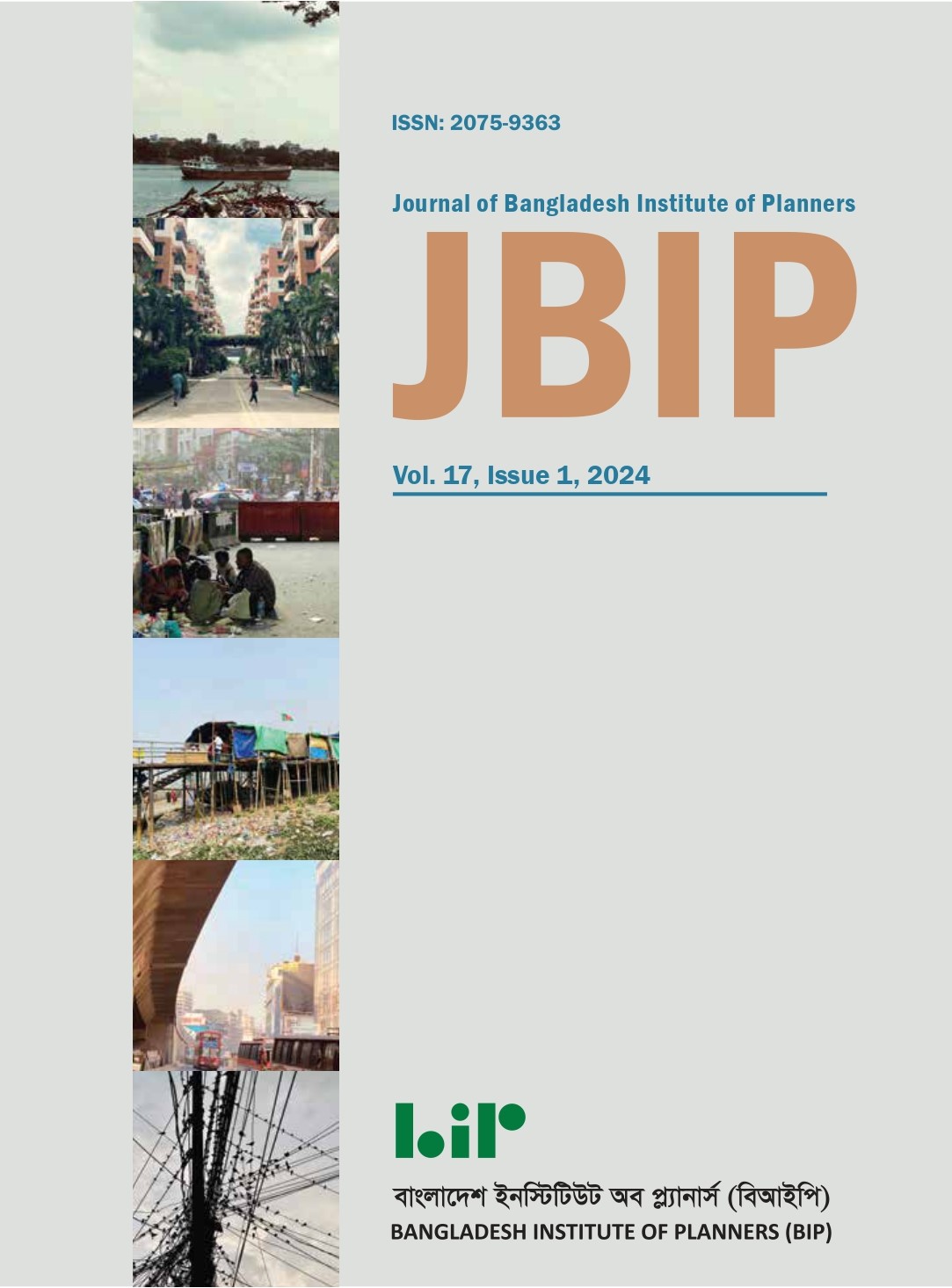Sustainable development of low-income low-rise housing in Sri Lanka: Issues and challenges
DOI:
https://doi.org/10.3329/jbip.v17i1.81156Keywords:
Low-income, Low-rise housing, Urban development, Sustainability, Well-beingAbstract
This study examines sustainability challenges in low-income, low-rise housing projects in Colombo, Sri Lanka, amid a severe housing crisis. Using a qualitative explorative approach, it investigates projects over 20 years old, including Gunasinghapura in Premchandra Mawatha, Mihindu Mawatha, and Torrington. Data were gathered through observations and semi-structured interviews, focusing on technical, management, legal, and social issues, and analyzed using 21 indicators of economic, social, and environmental sustainability. Participants included two housing experts from Urban Development Auhtority (UDA), one professional from National Housing Development Authority, Narahenpita Police Crime Branch official, and three household per project, selected via judgmental sampling. Descriptive and thematic methods were used for data analysis. The findings reveal that technical issues like physical defects, accessibility barriers, and inadequate infrastructure pose safety risks and degrade residents' quality of life, increasing repair costs, reducing property values, and causing environmental problems. Management challenges, such as lack of awareness, ineffective governance, and poor maintenance strategies, lead to resident dissatisfaction and hinder sustainable development. Legal complexities and unauthorized constructions exacerbate these issues, correlating with economic impacts from legal disputes and compliance costs, and highlighting environmental challenges in land use and urban planning. Concerns about privacy and mental health have been heightened by social issues like crime, substance misuse, vandalism, and the inappropriate use of communal areas. These problems lead to increased healthcare expenses, decreased productivity, and a negative public image, which ultimately threaten the sustainability of low-income housing initiatives. Thus, Study emphasizes the need to invest in infrastructure upgrades, community education, improved accessibility, enhanced security, and robust legal frameworks. Future studies should focus on developing evaluation frameworks and tackling similar challenges in housing projects for higher-income groups.
JBIP, Vol. 17, 2024, pp. 137-156
Downloads
379
415




